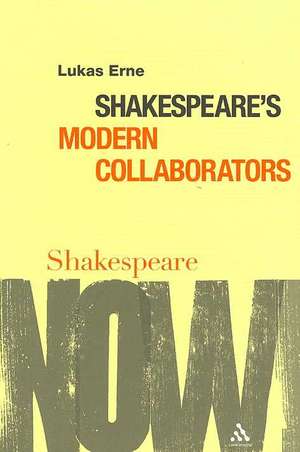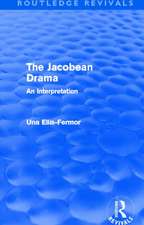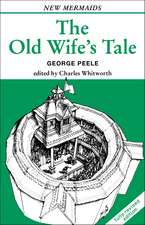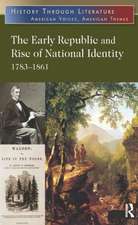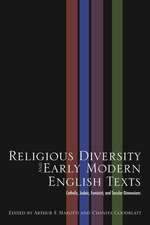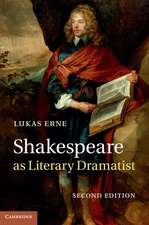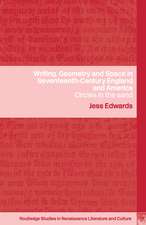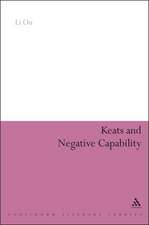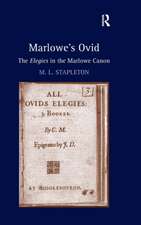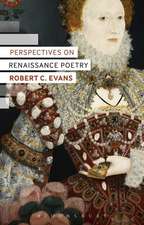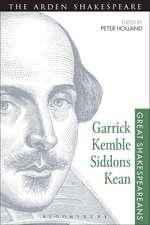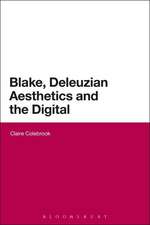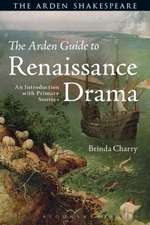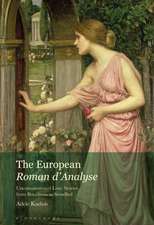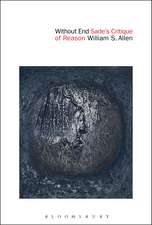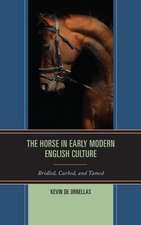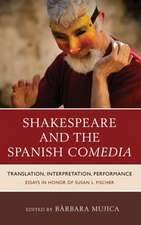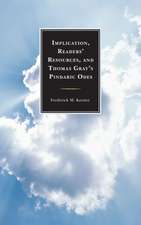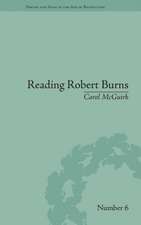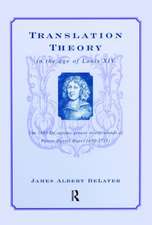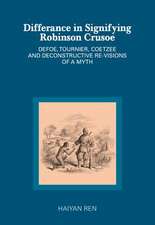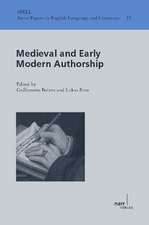Shakespeare's Modern Collaborators: Shakespeare Now!
Autor Lukas Erneen Limba Engleză Paperback – 17 dec 2007
Recent work in Shakespeare studies has brought to the forefront a variety of ways in which the collaborative nature of Shakespearean drama can be investigated: collaborative performance (Shakespeare and his fellow actors); collaborative writing (Shakespeare and his co-authors); collaborative textual production (Shakespeare and his transcribers and printers). What this leaves unaccounted for is the form of collaboration that affects more than any other our modern reading experience of Shakespeare's plays: what we read as Shakespeare now always comes to us in the form of a collaborative enterprise - and is decisively shaped by the nature of the collaboration - between Shakespeare and his modern editors.
Contrary to much recent criticism, this book suggests that modern textual mediators have a positive rather than negative role: they are not simply 'pimps of discourse' or cultural tyrants whose oppressive interventions we need to 'unedit' but collaborators who can decisively shape and enable our response to Shakespeare's plays. Erne argues that any reader of Shakespeare, scholar, student, or general reader, approaches Shakespeare through modern editions that have an endlessly complicated and fascinating relationship to what Shakespeare may actually have intended and written, that modern editors determine what that relationship is, and that it is generally a very good thing that they do so.
Contrary to much recent criticism, this book suggests that modern textual mediators have a positive rather than negative role: they are not simply 'pimps of discourse' or cultural tyrants whose oppressive interventions we need to 'unedit' but collaborators who can decisively shape and enable our response to Shakespeare's plays. Erne argues that any reader of Shakespeare, scholar, student, or general reader, approaches Shakespeare through modern editions that have an endlessly complicated and fascinating relationship to what Shakespeare may actually have intended and written, that modern editors determine what that relationship is, and that it is generally a very good thing that they do so.
| Toate formatele și edițiile | Preț | Express |
|---|---|---|
| Paperback (1) | 162.51 lei 3-5 săpt. | |
| Bloomsbury Publishing – 17 dec 2007 | 162.51 lei 3-5 săpt. | |
| Hardback (1) | 651.82 lei 6-8 săpt. | |
| Bloomsbury Publishing – 17 dec 2007 | 651.82 lei 6-8 săpt. |
Din seria Shakespeare Now!
- 9%
 Preț: 150.05 lei
Preț: 150.05 lei - 9%
 Preț: 149.61 lei
Preț: 149.61 lei - 15%
 Preț: 162.36 lei
Preț: 162.36 lei - 10%
 Preț: 124.55 lei
Preț: 124.55 lei - 5%
 Preț: 162.82 lei
Preț: 162.82 lei - 14%
 Preț: 149.70 lei
Preț: 149.70 lei - 15%
 Preț: 162.45 lei
Preț: 162.45 lei - 14%
 Preț: 162.71 lei
Preț: 162.71 lei - 9%
 Preț: 149.35 lei
Preț: 149.35 lei - 15%
 Preț: 162.10 lei
Preț: 162.10 lei - 25%
 Preț: 162.79 lei
Preț: 162.79 lei -
 Preț: 165.48 lei
Preț: 165.48 lei - 15%
 Preț: 162.36 lei
Preț: 162.36 lei - 25%
 Preț: 163.24 lei
Preț: 163.24 lei - 9%
 Preț: 149.54 lei
Preț: 149.54 lei -
 Preț: 128.05 lei
Preț: 128.05 lei
Preț: 162.51 lei
Preț vechi: 190.34 lei
-15% Nou
Puncte Express: 244
Preț estimativ în valută:
31.10€ • 33.77$ • 26.12£
31.10€ • 33.77$ • 26.12£
Carte disponibilă
Livrare economică 01-15 aprilie
Preluare comenzi: 021 569.72.76
Specificații
ISBN-13: 9780826489968
ISBN-10: 0826489966
Pagini: 144
Dimensiuni: 129 x 198 x 193 mm
Greutate: 0.17 kg
Editura: Bloomsbury Publishing
Colecția Continuum
Seria Shakespeare Now!
Locul publicării:London, United Kingdom
ISBN-10: 0826489966
Pagini: 144
Dimensiuni: 129 x 198 x 193 mm
Greutate: 0.17 kg
Editura: Bloomsbury Publishing
Colecția Continuum
Seria Shakespeare Now!
Locul publicării:London, United Kingdom
Caracteristici
Lukas Erne is one of the brightest academics in contemporary Shakespeare studies - his last book, Shakespeare as Literary Dramatist, was named the year's best book on Shakespeare by Jonathan Bate in the TLS.
Cuprins
Acknowledgements
Introduction
1.Establishing the Text
2.Framing the Text
3.Editing Stage Action
4.Editing the Real Lear
Conclusion
Abbreviations
Notes
Index
Introduction
1.Establishing the Text
2.Framing the Text
3.Editing Stage Action
4.Editing the Real Lear
Conclusion
Abbreviations
Notes
Index
Recenzii
"This witty, elegant and lucid book gives centre stage to the people who have interpreted and analysed Shakespeare before we read him: the editors. On page after page, Erne's carefully chosen textual examples illustrate not just the purpose but the *value* of editing. A joy to read, this is also an important contribution to our understanding of the way Shakespeare has been mediated to us in the past - and in the present." - Tiffany Stern, Oxford University
'Lukas Erne's Shakespeare's Modern Collaborators... argues that of the various modern mediators of the playwright's work, the most important is the modern editor, who makes it possible for readers today to comprehend the text in ways that mirror (not match) those of their early modern counterparts. In doing so, Erne challenges recent perceptions of the Shakespearean editor as either a "harmless drudge" or, citing the "unediting" movement of the past decade, a "harmful 'obfuscator'" who obscures or blocks meaning inherent in the original editions and often advances "sexist and imperialist assumptions" (pp. 4, 5, 9). These are serious problems but they are solved not by no edition but be better editing. The three central chapters examine the range of tasks in establishing the text, such as addressing questions of spelling and punctuation, emending doubtful readings, and inserting act and scene divisions (chapter 1); surveying forms of editorial intervention involving annotation, collation, etc. (chapter 2); and discussing the mediation of stage action (chapter 3). Erne reserves chapter 4 to show how all of these important responsibilities can impact upon a single play, King Lear. The book concludes by discussing the exciting ways in which dedicated editors of the future can provide new generations of readers and spectators with digital editions. This book is timely, lucidly written, and of special value to scholars and students interested in a concisely written and up-to-date overview of play-editing practices.'
'Against the ordinary person's vision of the editor as harmless drudge and the rival academic view of the editor as harmful obfuscator (pace Michael Warren or Leah Marcus), this short, dispassionate, lucidly argued volume seeks to illuminate the value of a fully mediated, "fully edited" version of the plays (7). It is worth noting the book's dispassion because while its title nods in the direction of sometimes self-indulgent celebrations of the editor as poetic compatriot (i.e., collaborator), Erne's argument is conspicuous for its moderation. Editors give us a more accessible and (important for Erne, author of Shakespeare as Literary Dramatist) a more readable Shakespeare.'
Erne offers an interesting discussion of the rethinking of the plays' order of composition that must have occurred between publication of the Oxford Complete Works' first edition in 1986 and the second edition of 2005.
"Lukas Erne does us a great service by correcting, with such scrupulous care, the Romantic myth that Shakespeare was a solitary genius. This lucidly written analysis makes clear that Shakespeare's work has been shaped profoundly by four sorts of collaboration: co-authorship in quite a few instances, the staging of the plays with fellow actors, the printing process, and the interventions of editors down through the centuries. Erne convincingly defends editing as potentially beneficial and creative in the best sense. What we mean by 'Shakespeare', then, is rich, complex, and ever enlarging in an ongoing collaboration involving the text, the stage, the critic, the reader, and the viewer." - David Bevington, Department of English Language, University of Chicago, USA, Editor of The Complete Works of Shakespeare
Mention in Today's Books/ Bookweek
'Lukas Erne's new book is certainly one of the most fascinating, thought-provoking and lucid studies of Shakespeare I can remember reading."- Robert C. Evans, Ben Jonson Journal
"The purpose of Shakespeare Now! is to produce a series of minigraphs to illuminate current challenges in Shakespearean scholarship in a fresh and accessible way. Appropriately, Lukas Erne's discussion mirrors this strategy by positing the role of the editor as a bridge between the Elizabethan era and our own times...he makes a strong case for the neglected and fundamental role of editors as proactive, creative collaborators bringing works to life for the reader and spectator." - Kenneth Schlesinger, Broadside, Summer 2008
"The ambitious project of the Shakespeare NOW series is to bridge the gap between 'scholarly thinking and a public audience' and 'public audience and scholarly thinking'. Scholars are encouraged to write in a way accessible to a general readership and readers to rise to the challenge and not be afraid of new ideas and the adventure they offer. There are other bridges the series is ambitious to cross: 'formal, political or theoretical boundaries' - history and philosophy, theory, and performance." English Vol. 58, 2009
"A selection of reviews of Erne's last book, Shakespeare as Literary Dramatist: The year's best book on Shakespeare - Jonathan Bate, TLS 'Erne's brilliant new book...sets out probably the most exhilarating change in our image of Shakespeare as a writer for decades...It is the work of a scholar who here and in the years to come has a vast amount to teach us about Shakespeare, making him new, just as every performanace makes the particular play new.' - Peter Holland, University of Notre Dame 'an unusually lively and provocative book" - David Scott Kastan, Columbia University, "Lukas Erne's new book is certainly one of the most fascinating, thought-provoking and lucid studies of Shakespeare I can remember reading." - Robert C. Evans, Ben Jonson Journal
"Erne offers a succinct review of contemporary debates over editorial practice and, most important, foregrounds the relationship between editing and production, raising many relevant questions that warrant the attention of editors, directors, and instructors. Summing up: Recommended. Graduate students, researchers, faculty, and professionals." - R. A. Stritmatter, CHOICE, September 2008
'Lukas Erne's Shakespeare's Modern Collaborators... argues that of the various modern mediators of the playwright's work, the most important is the modern editor, who makes it possible for readers today to comprehend the text in ways that mirror (not match) those of their early modern counterparts. In doing so, Erne challenges recent perceptions of the Shakespearean editor as either a "harmless drudge" or, citing the "unediting" movement of the past decade, a "harmful 'obfuscator'" who obscures or blocks meaning inherent in the original editions and often advances "sexist and imperialist assumptions" (pp. 4, 5, 9). These are serious problems but they are solved not by no edition but be better editing. The three central chapters examine the range of tasks in establishing the text, such as addressing questions of spelling and punctuation, emending doubtful readings, and inserting act and scene divisions (chapter 1); surveying forms of editorial intervention involving annotation, collation, etc. (chapter 2); and discussing the mediation of stage action (chapter 3). Erne reserves chapter 4 to show how all of these important responsibilities can impact upon a single play, King Lear. The book concludes by discussing the exciting ways in which dedicated editors of the future can provide new generations of readers and spectators with digital editions. This book is timely, lucidly written, and of special value to scholars and students interested in a concisely written and up-to-date overview of play-editing practices.'
'Against the ordinary person's vision of the editor as harmless drudge and the rival academic view of the editor as harmful obfuscator (pace Michael Warren or Leah Marcus), this short, dispassionate, lucidly argued volume seeks to illuminate the value of a fully mediated, "fully edited" version of the plays (7). It is worth noting the book's dispassion because while its title nods in the direction of sometimes self-indulgent celebrations of the editor as poetic compatriot (i.e., collaborator), Erne's argument is conspicuous for its moderation. Editors give us a more accessible and (important for Erne, author of Shakespeare as Literary Dramatist) a more readable Shakespeare.'
Erne offers an interesting discussion of the rethinking of the plays' order of composition that must have occurred between publication of the Oxford Complete Works' first edition in 1986 and the second edition of 2005.
"Lukas Erne does us a great service by correcting, with such scrupulous care, the Romantic myth that Shakespeare was a solitary genius. This lucidly written analysis makes clear that Shakespeare's work has been shaped profoundly by four sorts of collaboration: co-authorship in quite a few instances, the staging of the plays with fellow actors, the printing process, and the interventions of editors down through the centuries. Erne convincingly defends editing as potentially beneficial and creative in the best sense. What we mean by 'Shakespeare', then, is rich, complex, and ever enlarging in an ongoing collaboration involving the text, the stage, the critic, the reader, and the viewer." - David Bevington, Department of English Language, University of Chicago, USA, Editor of The Complete Works of Shakespeare
Mention in Today's Books/ Bookweek
'Lukas Erne's new book is certainly one of the most fascinating, thought-provoking and lucid studies of Shakespeare I can remember reading."- Robert C. Evans, Ben Jonson Journal
"The purpose of Shakespeare Now! is to produce a series of minigraphs to illuminate current challenges in Shakespearean scholarship in a fresh and accessible way. Appropriately, Lukas Erne's discussion mirrors this strategy by positing the role of the editor as a bridge between the Elizabethan era and our own times...he makes a strong case for the neglected and fundamental role of editors as proactive, creative collaborators bringing works to life for the reader and spectator." - Kenneth Schlesinger, Broadside, Summer 2008
"The ambitious project of the Shakespeare NOW series is to bridge the gap between 'scholarly thinking and a public audience' and 'public audience and scholarly thinking'. Scholars are encouraged to write in a way accessible to a general readership and readers to rise to the challenge and not be afraid of new ideas and the adventure they offer. There are other bridges the series is ambitious to cross: 'formal, political or theoretical boundaries' - history and philosophy, theory, and performance." English Vol. 58, 2009
"A selection of reviews of Erne's last book, Shakespeare as Literary Dramatist: The year's best book on Shakespeare - Jonathan Bate, TLS 'Erne's brilliant new book...sets out probably the most exhilarating change in our image of Shakespeare as a writer for decades...It is the work of a scholar who here and in the years to come has a vast amount to teach us about Shakespeare, making him new, just as every performanace makes the particular play new.' - Peter Holland, University of Notre Dame 'an unusually lively and provocative book" - David Scott Kastan, Columbia University, "Lukas Erne's new book is certainly one of the most fascinating, thought-provoking and lucid studies of Shakespeare I can remember reading." - Robert C. Evans, Ben Jonson Journal
"Erne offers a succinct review of contemporary debates over editorial practice and, most important, foregrounds the relationship between editing and production, raising many relevant questions that warrant the attention of editors, directors, and instructors. Summing up: Recommended. Graduate students, researchers, faculty, and professionals." - R. A. Stritmatter, CHOICE, September 2008
